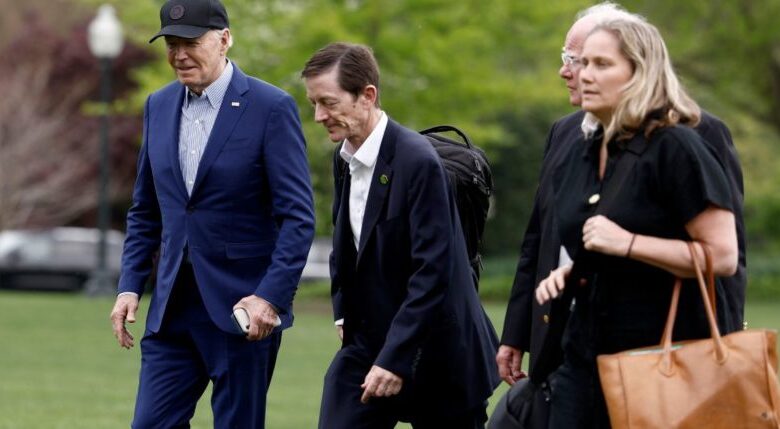Biden’s Approval Ratings Continue to Fall

WASHINGTON, D.C. — President Joe Biden averaged 38.7% job approval during his recently completed 13th quarter in office, which began on Jan. 20 and ended April 19. None of the other nine presidents elected to their first term since Dwight Eisenhower had a lower 13th-quarter average than Biden.
George H.W. Bush had the previous low 13th-quarter average approval rating, at 41.8% in 1992. Donald Trump and Barack Obama, Biden’s immediate predecessors in office, averaged 46.8% and 45.9% job approval, respectively, at the same point in their presidencies.
Jimmy Carter is the only other president with a sub-50% average in his 13th quarter. Three of the four prior presidents who had 13th-quarter approval averages below 50% lost their reelection bids, with Obama the exception.
Four of the six presidents who were reelected — Richard Nixon, Ronald Reagan, Bill Clinton and George W. Bush — averaged between 51% and 55% approval during their 13th quarters. Another, Dwight Eisenhower, had the highest average for a president at this stage of his presidency, 73.2%.
From a broader historical perspective, Biden’s most recent quarterly average ranks 277th out of 314 presidential quarters in Gallup records dating to 1945. That puts it in the bottom 12% of all presidential quarters.
Biden Job Approval Showing No Signs of Increasing
The latest quarterly average for Biden is technically the lowest of his presidency to date, though not meaningfully different from the previous quarter’s 39.0%. After Biden averaged better than 50% approval during his first two quarters in office, his subsequent readings have been near 40%.
During the 13th quarter, the war between Israel and Hamas in Gaza continued, as did elevated levels of illegal crossings at the U.S. Southern border. In February, a bipartisan immigration reform bill negotiated in the Senate failed to pass. And while macroeconomic indicators, particularly job growth, remain positive, there have been signs that inflation may be increasing again. The stock market, which hit record highs during the quarter, has faltered in recent weeks.
In Gallup’s latest poll, conducted April 1-22, 38% of Americans approve of the job Biden is doing, essentially unchanged from his March (40%) and February (38%) readings.
Biden continues to get extraordinarily low approval ratings from Republicans — just 2% in the latest poll — but his rating from independents is also weak, at 33%. The vast majority of Democrats, 83%, continue to evaluate Biden’s performance positively.
In this election year, when Biden is hoping U.S. voters reward him with a second term, he is needing some positive momentum to put him in a stronger position to be reelected. However, that didn’t occur during the past three months, with Americans no more positive about how Biden is doing his job than they were in his prior quarter, or for most of the past three years. This is the case even after Biden delivered his election-year State of the Union speech in March, a chance for him to sell his accomplishments directly to the American people.
With about six months remaining before Election Day, Biden stands in a weaker position than any prior incumbent, and thus faces a taller task than they did in getting reelected.




